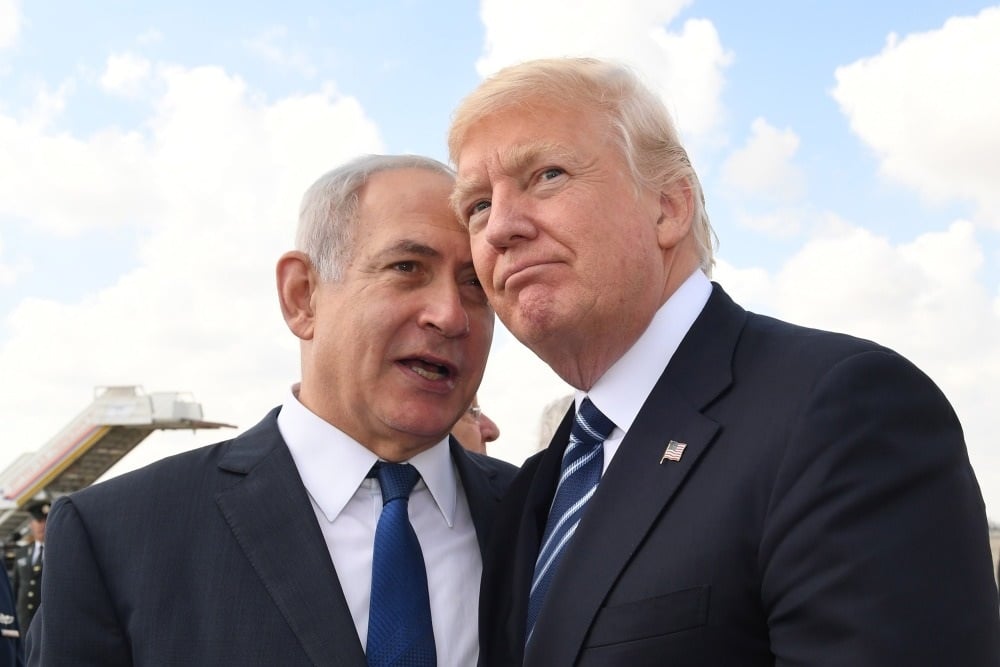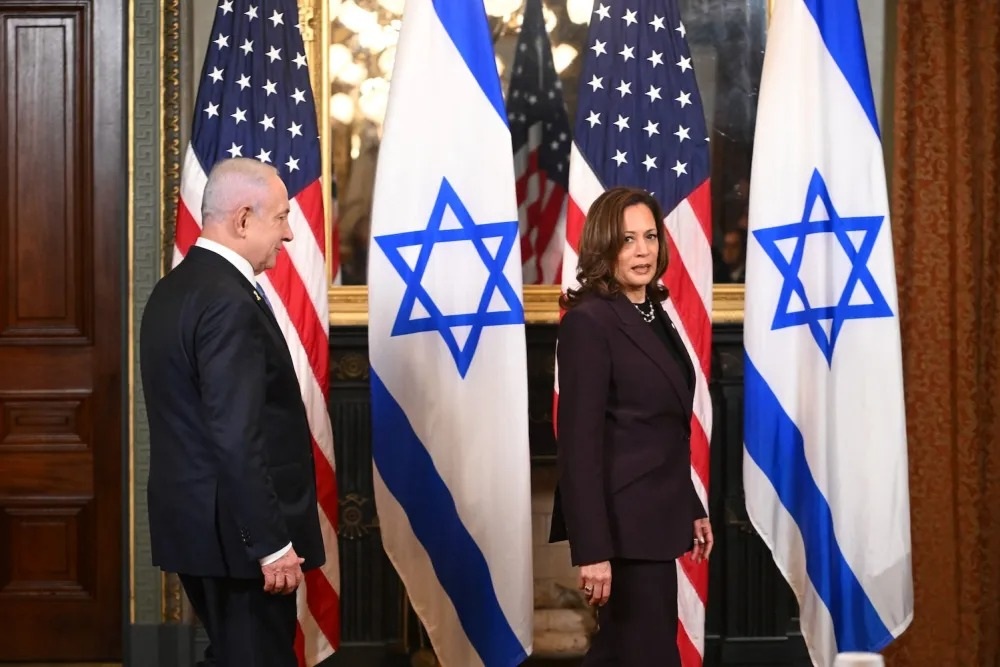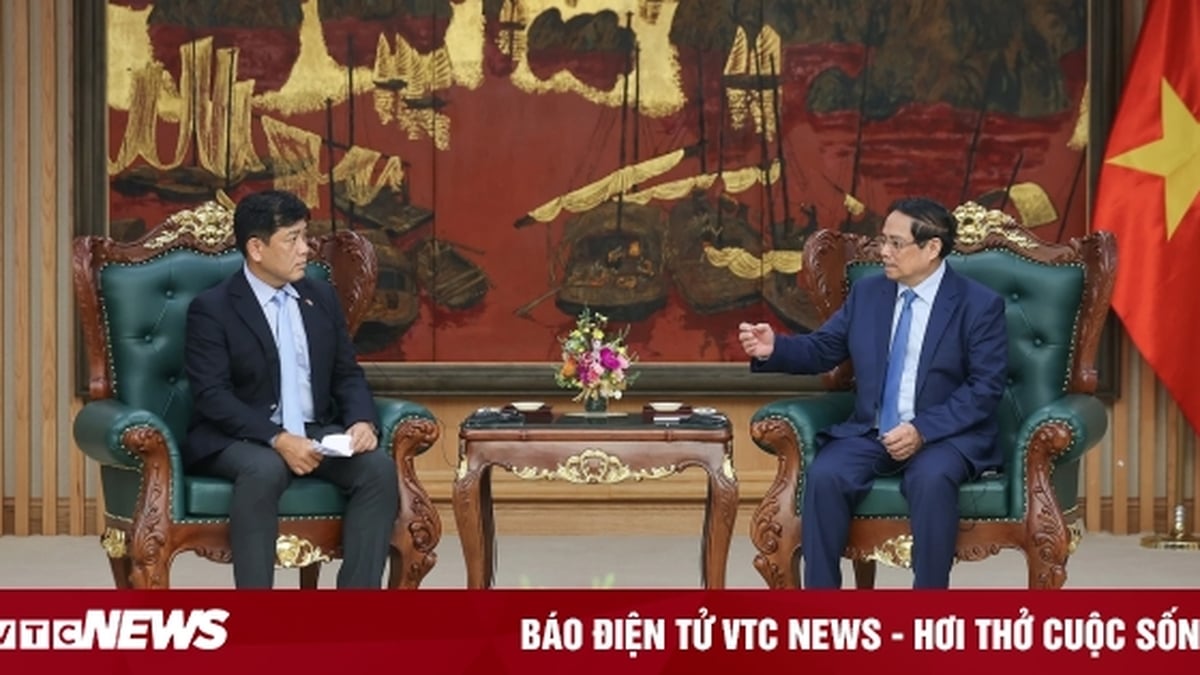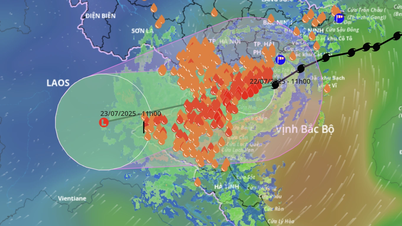In the final weeks before the November 5 election, both US presidential candidates Kamala Harris and Donald Trump have tried to use Israel as a divisive issue.
While former President Trump has said Israel could cease to exist within two years if he loses the White House race, Vice President Harris' campaign has criticized Trump's statements as anti-Semitic.
Mr. Trump and Ms. Harris disagree on a range of issues related to Israel, from how Israel should fight its conflicts to their radically different visions of America’s role in the world . But in the big picture, the two presidential candidates also have similar views.
Both Ms Harris and Mr Trump support Israel's multi-front war against a range of adversaries, from Hamas in Gaza to Hezbollah in Lebanon.
According to the Times of Israel , both US presidential candidates want to see an end to the war in Gaza. Both want to expand normalization agreements between Israel and its neighbors. Neither supports a “two-state solution” between Israel and Palestine.
And in one particularly notable commonality, both want to continue to abandon the nuclear deal with Iran from the era of former President Barack Obama.
Similarities in Middle East policy

Mr. Trump and Ms. Harris have some similarities in their positions on issues related to the Middle East region.
Both US presidential candidates pledged to support Israel, but expressed that support in different ways. While former President Trump said Israel's security depended on him, Vice President Harris pledged to defend America's alliance.
In a recent interview with Al Arabiya TV channel, Mr. Trump said he could help achieve peace in the Middle East based on the respect he received and the relationships he built in the region.
“I want to see the Middle East return to peace and real peace, but lasting peace and that will happen. I think the election will make a big difference. I am respected there and have great relationships with a lot of people,” Trump said.
The Republican presidential candidate has said that Israel’s future depends on his success. In a September speech to the Israeli-American Council, Trump portrayed himself as Israel’s “defender,” even warning that Israel would cease to exist if Harris won the election.
“If we continue on our current path, with another four years of Kamala Harris, Israel will face not just an attack, but total destruction,” Trump warned.
Meanwhile, Vice President Harris continued to emphasize the long-standing alliance between the United States and Israel. To mark the one-year anniversary of the Gaza conflict that broke out on October 7, Harris and her Jewish husband planted a pomegranate tree at the vice president’s residence, a symbol of the enduring US-Israeli alliance. At least 1,200 people were killed and 251 hostages were taken in the Gaza Strip during Hamas’ surprise attack on Israel on October 7, 2023.
“On this momentous day, I will make my commitment to ensure that Israel has what it needs to defend itself,” Harris said.
Tom Nides, who served as US Ambassador to Israel, said Ms Harris' support would make it easier for Israel to make its decision.
“Israel is very vulnerable and they need our help, so we will help them,” Mr. Nides said.
Another similarity between the two presidential candidates is that both do not want to prolong the war in the Gaza Strip and want the conflict to end soon.
Harris has offered a vision for ending the war with empathy for both Palestinian and Israeli victims, an effort to bridge the Democratic divide over the Gaza war.
“I am working to ensure that the conflict ends, so that Israel is safe, the hostages are released, the suffering in Gaza ends, and the Palestinian people have their right to respect, freedom, and self-determination,” Harris stressed during a meeting with Jewish leaders.
For months, Mr. Trump has also advocated a quick end to the war in Gaza. In March, he declared that the war in Gaza must end, and end it quickly. He has repeated that call in the months since.
“I urged him to end this war. This war has to end quickly. The fighting has to stop, the killing has to stop,” Trump said at a press conference in August, referring to Israeli Prime Minister Benjamin Netanyahu.

The similarities between the two presidential candidates are also shown in the point that both want to withdraw the US from the Iran nuclear deal.
One of the biggest foreign policy differences between Mr. Trump and Mr. Biden concerns the Iran nuclear deal, signed in 2015 when Mr. Biden was vice president under Mr. Obama.
The deal limited Iran’s nuclear program in exchange for the easing of US sanctions. Netanyahu has criticized the deal. After taking office, Mr. Trump withdrew the US from the deal in 2018. But Mr. Biden, in his first months in office, sought to restore the Iran nuclear deal.
Iran is believed to be at a point where it could have a nuclear weapon within a week. The Trump and Harris campaigns blame each other for this situation, but neither side wants to bring the US back into the Iran nuclear deal. Harris has stopped even mentioning the deal. Earlier this month, she even called Iran America’s “clear and present” main adversary.
“I don’t think Harris or Trump will revive the Iran nuclear deal,” said US diplomat in Israel Nides.
Mr Trump once said that one of his proudest moments was withdrawing the US from the Iran nuclear deal. However, he now says he will reach another deal with Iran, although he has not disclosed details.
One rare point of agreement between Mr. Biden and Mr. Trump is that they both support the Abraham Accords, a 2020 agreement to normalize relations between Israel and four neighboring Arab states. The agreement remains on the agenda of both candidates, Trump and Harris, despite the conflict.
Jeremy Bash, a top defense and intelligence official in the Obama administration, said Vice President Harris strongly supports Israel's integration into the region and bringing other countries into the Abraham Accords.
Meanwhile, Mr. Trump has also pledged to seek peace in the Middle East. Mr. Trump’s son-in-law and former senior White House adviser, Jared Kushner, is said to be still encouraging Saudi Arabia to join the accord, a move that President Biden also pushed hard for in the wake of Hamas’ attack on Israel in October 2023.
Former President Trump said he would bring Iran into the Abraham Accords along with at least 10 other countries, a scenario that would require a major compromise between Israel and the United States.
Prime Minister Netanyahu’s government has rejected the possibility of a Palestinian state, especially after Hamas’s attack on Israel last October. This scenario also did not appear in the speeches of Mr. Trump and Ms. Harris.
Still, Trump remains an unpredictable leader. In July, Trump upset Netanyahu when he publicly thanked Palestinian Authority President Mahmoud Abbas for wishing him well after an assassination attempt. But Trump later had a cordial meeting with Netanyahu.
The difference in the positions of the two candidates

Vice President Harris' Gaza policy focuses on seeking a ceasefire, while former President Trump has said ending the conflict is Israel's decision.
Harris’ campaign said she supports Israel’s goal of eliminating Hamas and Hezbollah. Harris has pushed for a ceasefire in Gaza, while Netanyahu has vowed to continue the war.
Ms Harris expressed sympathy for the tens of thousands of civilians killed and injured in the war, and called on Israel to allow more aid into Gaza.
“Israel must urgently do more to facilitate the flow of aid to those in need. Civilians must be protected and must have access to food, water and medicine. International humanitarian law must be respected,” Harris stressed.
Meanwhile, Mr. Trump determined that the war in the Middle East will end in an Israeli victory. He criticized Ms. Harris's call for a ceasefire, seeing it as a barrier to Israel.
“From the beginning, Harris has sought to tie Israel’s hands behind its back, demanding an immediate ceasefire and insisting on a ceasefire. A ceasefire would give Hamas more time to regroup and launch a new attack similar to the one on October 7,” Trump said at a press conference in August.
However, in an interview with Al Arabiya , Mr. Trump said that negotiations were still possible. He also said that the attacks would not have happened if he were in the White House.
Mr Trump and Ms Harris also have different positions on how Israel should attack Iran, as tensions between the two countries escalate.
Since Iran attacked Israel with more than 180 missiles in early October, much has been said about how Israel will respond. The United States has signaled that it may assist Israel in carrying out a response to Iran.
Ms Harris said “all options are on the table”. Her campaign left open the possibility that Israel’s response would involve the US.
As for Mr. Trump, he ordered the killing of Qassem Soleimani, a top Iranian general, as president. However, Mr. Trump has not supported war and has not said whether he would allow the United States to participate in a retaliatory strike by Israel.
In an interview with Al Arabiya , Mr. Trump said that Israel should attack Iran's nuclear facilities.
“Our greatest risk is nuclear weapons, the power of nuclear weapons. Hit the nuclear facilities first, the rest later,” Mr. Trump said at a campaign event this month.
Elijah J. Magnier, a veteran war correspondent and political analyst with over 35 years of experience covering Middle East and North African issues, told Sputnik that there are many contradictions in what both US presidential candidates are saying and doing on Middle East-related issues.
“We have heard the US administration, both Joe Biden and Kamala Harris, say that they want a ceasefire in Gaza and Lebanon, but they are supporting Israel with all the weapons that Israel needs and ammunition to support the war in Gaza,” Magnier stressed.
According to Mr. Magnier, for Kamala Harris, she is “a seasoned prosecutor” rather than “a seasoned politician,” which is why if she wins the election, her stance on the Middle East will be influenced by other politicians who will make the real decisions in the US government.
Former President Trump also showed contradictions in his stance.
“Former President Trump said he wanted to stop the war in Gaza, but then he said something else, saying that Israel is too small and needs to be expanded… Expanding Israel means it will be involved in more wars with its neighbors. We are talking about Lebanon, Jordan, Egypt,” Magnier said.
“This is why if Mr. Trump wins, I don't think he will do what he promised to do to stop the war in the Middle East and find a solution for Iran, instead both Democrats and Republicans will still impose sanctions, and the Republicans will impose even more,” Mr. Magnier added.
“Ultimately, both candidates must ensure the global interests of the United States and its allies, including Israel. That is why everything will depend on the new administration and how far it can go,” the expert concluded.
According to Times of Israel, Sputnik, Newsweek
Dantri.com.vn
Source: https://dantri.com.vn/the-gioi/cuoc-chien-can-nao-cua-ong-trump-va-ba-harris-tren-ban-co-trung-dong-20241028182323818.htm






































































































Comment (0)